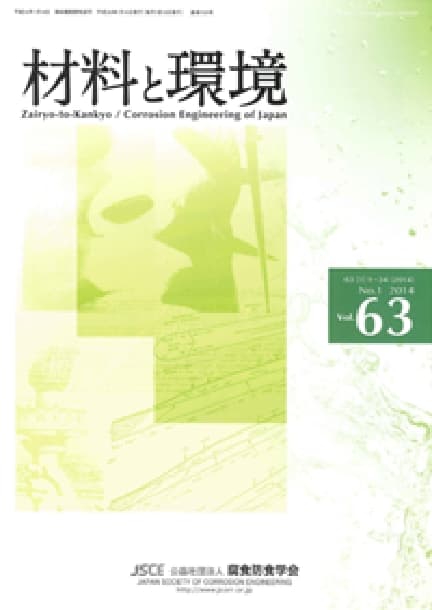Synthesis and Properties of Perovskite-type LaCrO3
Atsushi Furusaki
pp. 126-133
Abstract
Perovskite-type lanthanum chromium composite oxide, LaCr(III)O3, was prepared from La(III)-Cr(VI) mixed solution, and the pyrolytic process was investigated. It was found that the pyrolytic reaction of La(III)-Cr(VI) precursor was affected by partial pressure of oxygen, pO2, in the atmosphere. For pO2≥0.1atm, the reaction clearly proceeds in two steps via the formation of monazite-type LaCr(V)O4 as an intermediate.
The structure and the stability of LaCrO4, the electronic configuration of CrO43- cluster, and the kinetics of the conversion of LaCrO4 to LaCrO3 in different atmospheres were studied. In nitrogen, the rate determing step was three-dimensional phase-boundary reaction, and in oxygen, it was three-dimensional diffusion of oxygen through the LaCrO3 layer.
LaCrO3-base oxide films were formed on the several substrates successfully by ultrasonic spray pyrolysis from La(III)-Cr(VI)-base solutions. The oxide films improved oxidation resistance of SUS 304 stainless steels at 1000°C in 20% H2O-air.










